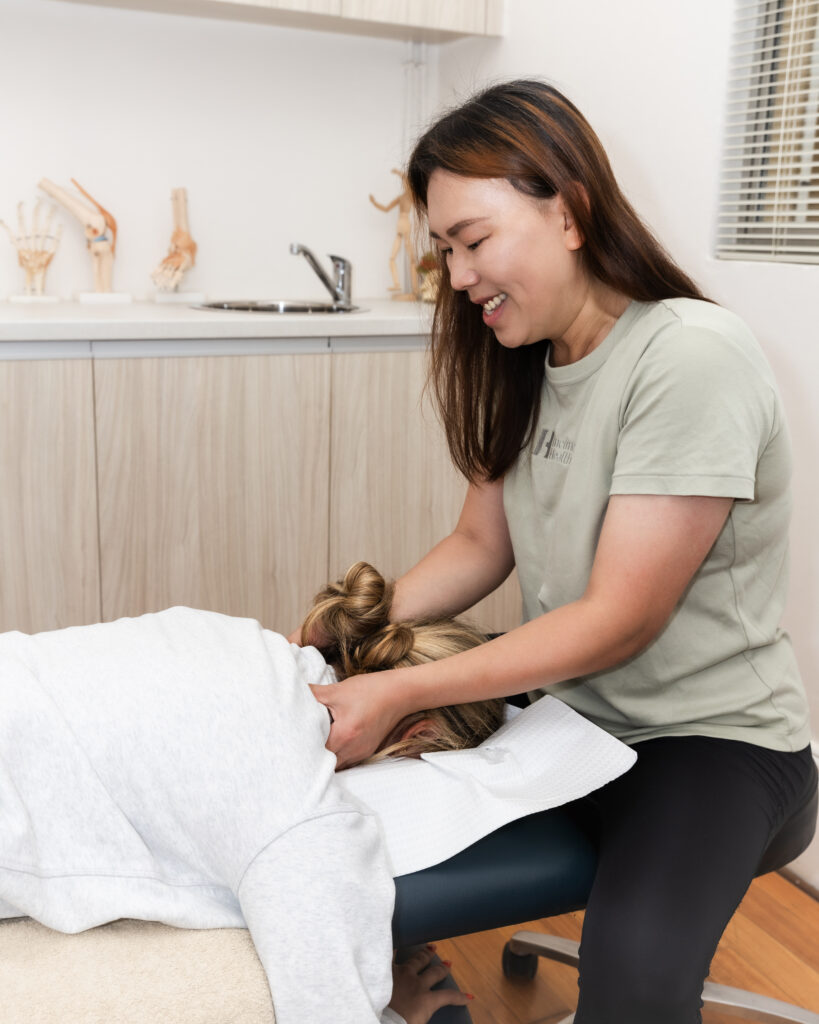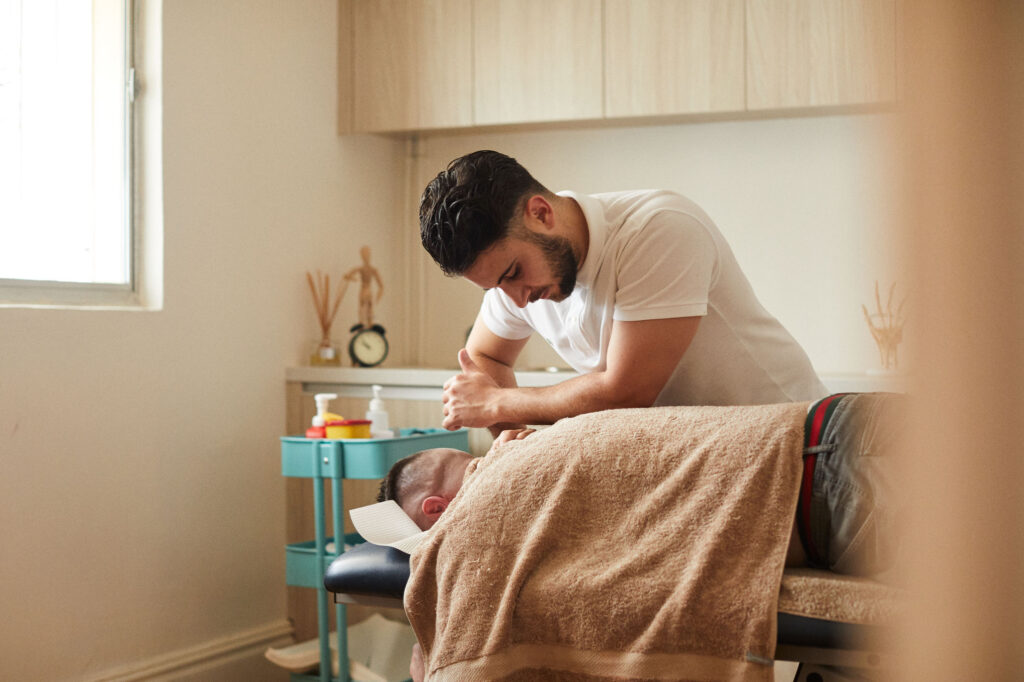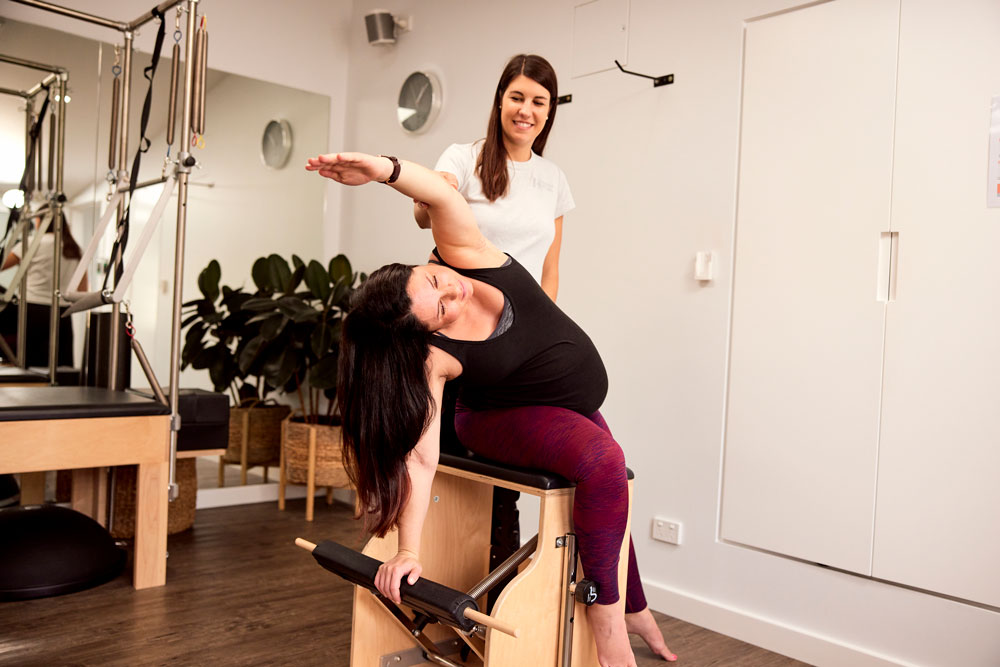The Role of a Physiotherapist in Rest, Recovery & Sleep Habits


In today’s fast-paced world, the significance of sufficient rest, recovery and sleep habits is often overlooked. Yet they play a critical role in maintaining optimal health, improving physical performance, and enhancing mental wellbeing. Whether you’re an athlete, an office worker, or simply trying to stay productive throughout the day, understanding how your body and mind recharge during rest and sleep is essential.
Sleep isn’t just about closing your eyes—it’s when your body undergoes crucial biological processes that affect everything from immune system function to hormone balance, heart health, and mental health. As experts in musculoskeletal care, physiotherapists help you recover faster, improve sleep hygiene, and maintain good habits for a well-balanced life.
Understanding the Science of Sleep
Your Body’s Internal Clock and Circadian Rhythms
Our bodies follow a natural 24-hour cycle called the circadian rhythm, which serves as the body’s internal clock. This rhythm is guided primarily by light exposure. Natural light in the morning tells the brain it’s time to wake, while darkness triggers the release of melatonin, preparing us to fall asleep.


Maintaining a regular bedtime and wake time helps regulate this internal clock. Disrupting this rhythm—by staying up late, experiencing jet lag, or working night shifts—can affect hormone balance, sleep quality, and overall health.
What Happens When You Sleep?
During sleep, the brain and body enter various stages, including deep sleep and REM (rapid eye movement) sleep. Deep sleep is the stage most associated with physical recovery. It’s when the brain consolidates long term memory, and the body engages in tissue repair and muscle repair.
This restorative stage supports hormone regulation, the nervous system, and cardiovascular system. Deep sleep is essential for the immune system, helping fight off illness and reducing inflammation.
Sleep Duration and Quality Sleep: How Much Do You Really Need?
How Many Hours of Sleep Are Enough?
The general recommendation for adults is 7 to 9 hours of sleep each night. But it’s not just about the number of hours of sleep—quality sleep matters just as much. Interrupted sleep can prevent you from entering deep sleep, even if you’re technically in bed for a long time.
Research shows that sufficient rest improves mental clarity, mood, energy levels, and physical recovery. On the flip side, chronic sleep deprivation increases the risk of high blood pressure, low energy, impaired focus, and overuse injuries.
Signs You’re Not Getting Enough Rest
If you’re constantly experiencing fatigue, mid afternoon slumps, or struggling to stay awake, these may be signs of poor sleep hygiene or sleep deprivation . Other red flags include:
- Frequent yawning or irritability
- Difficulty concentrating
- Slow recovery time after physical activity
- Persistent muscle soreness
- Feeling unwell rested despite sleeping for long hours
Why Rest Is Essential for Recovery
Rest day is the secret weapon in your recovery routine.


Whether you’re exercising regularly or recovering from injury, incorporating rest days into your routine is crucial. A well-timed rest day allows the body to repair tiny tears in muscle fibres, reduce fatigue, and improve hormone balance.
Physiotherapists often incorporate rest days and active recovery into rehabilitation plans to avoid overtraining and give your body time for tissue repair and nervous system recalibration.
Active Recovery vs. Passive Recovery
Not all recovery means lying still; achieving quality rest can also involve active practices . Active recovery includes light exercise like walking, stretching, or foam rolling, which improves blood flow and speeds up healing without adding strain. Physiotherapists often guide you through active recovery practices to enhance mobility and reduce stiffness.
Physiotherapy’s Role in Sleep and Recovery
Physiotherapists are trained to assess how musculoskeletal issues might be affecting your rest, sleep, and recovery.
Manual Therapy to Promote Better Sleep
Manual therapy techniques such as massage, joint mobilisations, and soft tissue work reduce pain, enhance blood flow, and prepare the body for quality rest. These techniques help regulate the nervous system, reduce stress, and improve your ability to fall asleep and stay asleep.
Corrective Exercises to Support Sleep Habits
A customised exercise plan can:
- Improve posture
- Relieve pain that keeps you awake
- Reduce inflammation
- Build resilience against overuse injuries
This promotes better sleep and long-term recovery outcomes. A strong, balanced body is less likely to experience sleep disruptions due to discomfort or stress.
Breathing & Relaxation Techniques
Stress activates the sympathetic nervous system—also known as the “fight or flight” mode—which interferes with sleep and can negatively impact mental health . Physiotherapists can teach breathing exercises and relaxation techniques that calm the nervous system, reduce stress, and support better sleep hygiene.
Conditions That Interfere with Sleep (and How Physios Help)
Sleep issues aren’t always due to poor habits. Sometimes, physical discomfort is the main disruptor. Here are common problems physiotherapy can address:
1. Neck and Shoulder Pain
Sleeping in awkward positions or on unsupportive pillows can cause neck and shoulder tension. Physiotherapists help with ergonomic pillow selection and exercises to ease discomfort.
2. Back Pain
Poor spinal alignment, tight muscles, or nerve impingement can make it hard to get comfortable in bed. Manual therapy and postural correction can relieve pressure and improve sleep quality.


3. Hip and Knee Discomfort
These are common in active individuals or those recovering from surgery. Physios help reduce inflammation and recommend sleeping positions that support joint health.
How to Improve Your Sleep Hygiene
Sleep hygiene refers to the daily routines and environment that promote better sleep and overall well being . Here’s how to optimise yours—with a physio-informed approach:
1. Set a Consistent Sleep Cycle
Go to bed and wake at the same time—even on weekends. This strengthens your internal clock and makes it easier to fall asleep.
2. Create a Relaxing Bedtime Routine
Engage in calming activities before bed such as:
- Reading
- Gentle stretching
- Drinking herbal tea
- Listening to soft music
Avoid screens, which emit blue light and interfere with melatonin production.
3. Block Light and Use Natural Light Strategically
Use blackout curtains to block light at night and maximise exposure to natural light in the morning. This helps regulate melatonin and your body time perception.
4. Mind Your Environment
Your bedroom should be cool, dark, and quiet. Consider white noise machines or earplugs if necessary.
5. Be Mindful of Food and Drink
Avoid caffeine and alcohol in the evening. Eat your last meal a few hours before bed to reduce digestive disruptions. If you need a warm drink, opt for a calming herbal tea.
Daily Recovery Practices for Better Sleep and Health
Get Moving
Even light physical activity can improve sleep duration and help you feel more rested, leading to more rest overall. Aim to stay active throughout the day with stretching, walking, or yoga.
Use Tools Like Foam Rollers
Foam rolling promotes circulation and reduces muscle tightness, which can help with relaxation and recovery before bedtime.


Try Cold Water Immersion (With Caution)
Some research shows cold water therapy can reduce inflammation and muscle soreness. Discuss this with your physiotherapist to ensure it fits your recovery routine.
Mental Health, Sleep, and the Body-Mind Connection
Mental health and sleep are deeply connected, influencing your mood in various ways . Poor sleep worsens anxiety and depression, and vice versa. By addressing physical pain, stress, and fatigue, physiotherapy supports both your physical and mental well being.
When your body is aligned and pain-free, your mind rests easier. The combined care of your body and mind leads to better long-term outcomes for health and recovery.
Case Study: From Fatigue to Focus with Physiotherapy
Liam, a 35-year-old corporate manager, reported low energy, high stress, and poor sleep. After a thorough assessment, his physiotherapist identified postural imbalances and chronic upper back tension. Over six weeks, Liam’s treatment included manual therapy, tailored exercises, and breath training.
Not only did his back pain subside, but his sleep improved dramatically. He felt more well rested, energetic, and focused during the day ahead. This holistic recovery approach gave Liam his vitality back.
When to See a Physiotherapist for Sleep or Recovery Issues
You should consider booking an appointment if you:
- Struggle to fall asleep or stay asleep
- Wake up feeling sore or tired
- Experience persistent fatigue despite sleeping enough
- Have pain that worsens at night or after physical activity
- Feel your performance or recovery time is lagging
A physiotherapist will develop a personalised plan to address these issues and enhance your recovery practices.
Final Thoughts: Physiotherapy as Your Recovery Ally
Physiotherapists are essential partners in promoting better sleep, supporting recovery, and maintaining well being. Their interventions are designed to:
- Improve sleep quality
- Enhance physical and mental recovery
- Reduce muscle soreness and stress
- Support your body’s internal clock and immune system
At Incline Health, our team understands the intricate connections between the body and mind. We’re here to help you optimise your rest, recovery, and sleep habits through evidence-based strategies tailored to your lifestyle.
Book an Appointment Today


Struggling with sleep, low energy, or unsure about how much sleep you need? Want to recover faster or reduce fatigue after exercise? Speak to one of our experienced physiotherapists at Incline Health.
Ready to book your next session?
Call us at 02 9569 9552. Explore more at www.inclinehealth.com.au
Frequently Asked Questions
Q: How many hours of sleep do adults need for optimal recovery?
A: 7–9 hours of sleep per night supports muscle repair, immune health, and mental focus.
Q: Can physiotherapy help me sleep better?
A: Yes! Physiotherapists treat pain, improve posture, and teach relaxation techniques to support better sleep.
Q: Should I take a rest day if I feel sore?
A: Absolutely. A rest day is vital for tissue repair, especially after intense exercise or injury.
Q: What are signs of poor sleep hygiene?
A: Difficulty falling asleep, frequent waking, low energy during the day, and reliance on caffeine.
Q: How can I improve my bedtime routine?
A: Dim lights, avoid screens, sip herbal tea, and try gentle stretching or breathing exercises to signal your body it’s time to rest.
Q: What is the link between sleep and the immune system?
A: During deep sleep, your body releases cytokines—proteins that help the immune system fight infection, inflammation, and stress. Without enough rest, your immune system becomes compromised, making it harder for your body to recover or stay healthy.
Q: Can poor sleep habits affect my heart health?
A: Yes. Chronic sleep deprivation is linked to an increased risk of cardiovascular disease and high blood pressure. Consistent, quality rest supports the cardiovascular system by lowering stress hormones and reducing strain on the heart.
Q: How does blue light impact sleep quality?
A: Exposure to blue light from screens at night suppresses melatonin production, delaying your ability to fall asleep. Physiotherapists often recommend reducing screen time before bed or using apps that block light in the blue spectrum.
Q: Is it normal to wake up with muscle soreness?
A: Mild soreness can be a sign of previous physical activity, but persistent or severe soreness might indicate poor recovery practices or overuse injuries. A physio can assess your muscle repair needs and improve your recovery time.
Q: What role does physical activity play in better sleep?
A: Regular exercise helps regulate your sleep cycle, boosts energy during the day, and promotes deeper, better sleep at night. Just ensure you allow enough rest between workouts to avoid fatigue and enhance recovery.
Q: Are there natural ways to improve sleep without medication?
A: Absolutely. Lifestyle adjustments like reducing stress, using herbal tea, practicing good sleep hygiene, and following a consistent bedtime routine can significantly improve sleep duration and quality rest without relying on medication.





